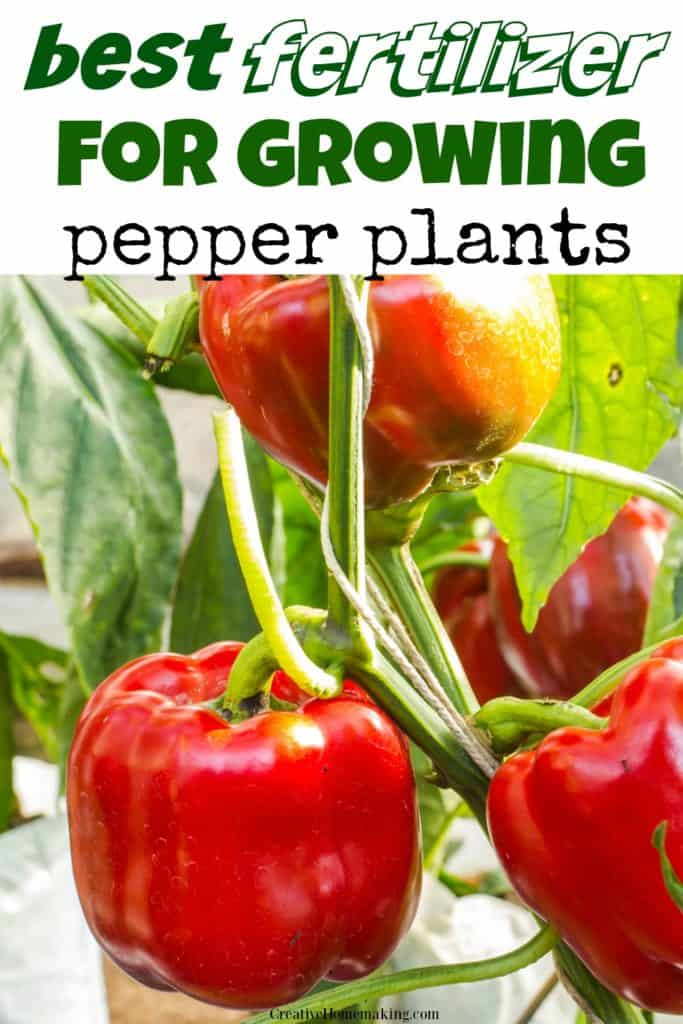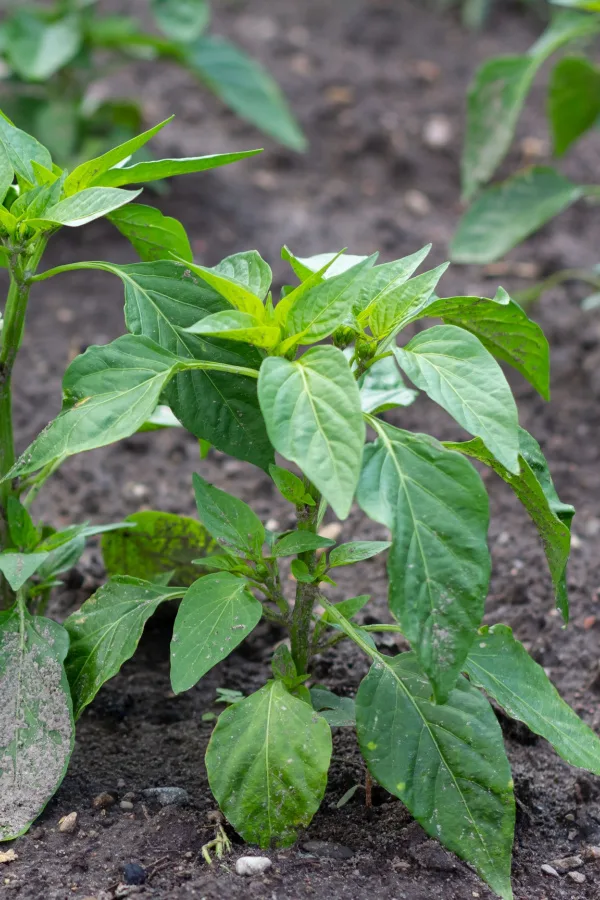Best Fertilizers for Peppers: A Comprehensive Overview to Increase Your Harvest
Best Fertilizers for Peppers: A Comprehensive Overview to Increase Your Harvest
Blog Article
Organic Vs. Synthetic Fertilizers: Which Is Best for Nurturing Healthy Pepper Plants?
In the world of supporting healthy and balanced pepper plants, the option between artificial and organic fertilizers stands as a critical choice with far-reaching implications. While both alternatives objective to offer crucial nutrients to support plant growth, the nuances of their effect on the dirt, plant wellness, and the setting spark a dispute that mirrors throughout the gardening area. Understanding the unique benefits and potential challenges of each plant food kind is crucial for pepper growers looking for to optimize their yields while keeping a sustainable and eco-conscious approach.
Advantages of Organic Fertilizers
Organic plant foods supply a sustainable and environmentally-friendly approach to nourishing pepper plants, providing important nutrients without the use of synthetic chemicals. These all-natural fertilizers are acquired from natural resources such as compost, manure, bone meal, and algae, promoting soil health and wellness and biodiversity. Unlike synthetic plant foods, natural options launch nutrients gradually, ensuring a constant and well balanced supply for pepper plants to grow.
One significant advantage of natural plant foods is their capability to improve dirt framework and water retention. By boosting dirt health and wellness, natural fertilizers advertise helpful microbial task, which assists in nutrient uptake by pepper plants. Additionally, natural fertilizers reduce the risk of chemical run-off, safeguarding water resources from contamination and guarding the setting.
Moreover, natural fertilizers contribute to long-lasting dirt fertility by advertising the growth of advantageous dirt organisms. These organisms help damage down natural issue, launching nutrients in a kind that is easily accessible to pepper plants. best fertilizers for peppers. By cultivating a healthy soil ecological community, natural plant foods support lasting pepper growing practices that profit both plants and the environment
Drawbacks of Artificial Fertilizers
Synthetic plant foods, as opposed to their natural equivalents, pose various disadvantages when made use of to nourish pepper plants, influencing both plant wellness and ecological sustainability. One significant disadvantage of synthetic fertilizers is their propensity to seep nutrients from the soil swiftly. This quick leaching can result in vitamins and mineral inequalities in the dirt, creating plants to struggle with deficiencies or poisonings. In addition, artificial fertilizers can damage useful soil organisms, such as earthworms and valuable microorganisms, interfering with the soil ecological community's equilibrium.
Additionally, the overuse of synthetic fertilizers can add to water contamination. Excess fertilizers not soaked up by plants can remove into water bodies, resulting in eutrophication, where algae blossoms diminish oxygen degrees in the water, hurting marine life. Additionally, artificial fertilizers are generally obtained from non-renewable resources, such as nonrenewable fuel sources, adding to carbon exhausts and ecological destruction throughout their manufacturing.
Nutrient Absorption Comparison
Effective nutrient absorption plays an essential function in the general health and growth of pepper plants. When comparing organic and artificial plant foods in terms of nutrient absorption, organic fertilizers have the advantage of giving an extra balanced and slow-release resource of nutrients (best fertilizers for peppers). Organic plant foods include a range of macro and micronutrients that are not just useful for the plants however likewise advertise healthy dirt microbial activity, which helps in nutrient uptake. On the various other hand, synthetic fertilizers typically supply a quick launch of nutrients, which can cause leaching and overflow, leading to lower nutrient absorption prices by the plants.
Moreover, organic fertilizers boost dirt framework and water retention capacity, allowing pepper plants to accessibility nutrients extra effectively. This better dirt high quality promotes root advancement, making it possible for better nutrient absorption. Artificial plant foods, although originally increasing plant development because of their high nutrient focus, might impede long-term nutrient absorption by degrading dirt wellness gradually.
Ecological Impact Considerations

On the various other hand, artificial fertilizers, although commonly even more focused and promptly offered to plants, can have damaging effects on the environment if not applied appropriately (best fertilizers for peppers). Their production requires high energy inputs, bring about greenhouse gas exhausts and adding to environment change. In addition, the overflow of excess synthetic fertilizers can pollute water sources, resulting in eutrophication and harming water ecosystems.
Ideal Plant Food Practices for Peppers
When feeding pepper plants, maximizing nutrient uptake and reducing ecological impact are key considerations. To achieve this, it is vital to comply with finest fertilizer techniques customized to the particular requirements of pepper plants. One vital practice is to execute a dirt test prior to applying any type of fertilizers. This test can identify the pH level of the soil and recognize any nutrient shortages, guiding you in selecting one of the most appropriate fertilizer formula.
Another important practice is to feed pepper plants at the right time. Typically, peppers profit from receiving plant food at planting and after that again when they begin to blossom. Over-fertilizing can result in nutrient inequalities and harm the plants, so it is crucial to follow suggested application rates.
In addition, picking a well balanced fertilizer with an NPK proportion that matches pepper plants' needs is basic. Eventually, integrating organic and synthetic plant foods judiciously can aid support healthy and balanced pepper plants while decreasing ecological influence.
Final Thought

Organic fertilizers offer a lasting and environmentally-friendly approach to beneficial pepper plants, providing necessary nutrients without the usage of synthetic chemicals. investigate this site Unlike synthetic plant foods, natural choices launch nutrients slowly, ensuring a stable and well balanced published here supply for pepper plants to flourish.
Artificial plant foods, in contrast to their organic equivalents, posture different disadvantages when made use of to nurture pepper plants, impacting both plant wellness and ecological sustainability. When comparing synthetic and organic fertilizers in terms of nutrient absorption, natural fertilizers have the advantage of offering an extra balanced and slow-release source of nutrients.Moreover, natural plant foods enhance soil framework and water retention capability, enabling pepper plants to accessibility nutrients much more effectively.
Report this page